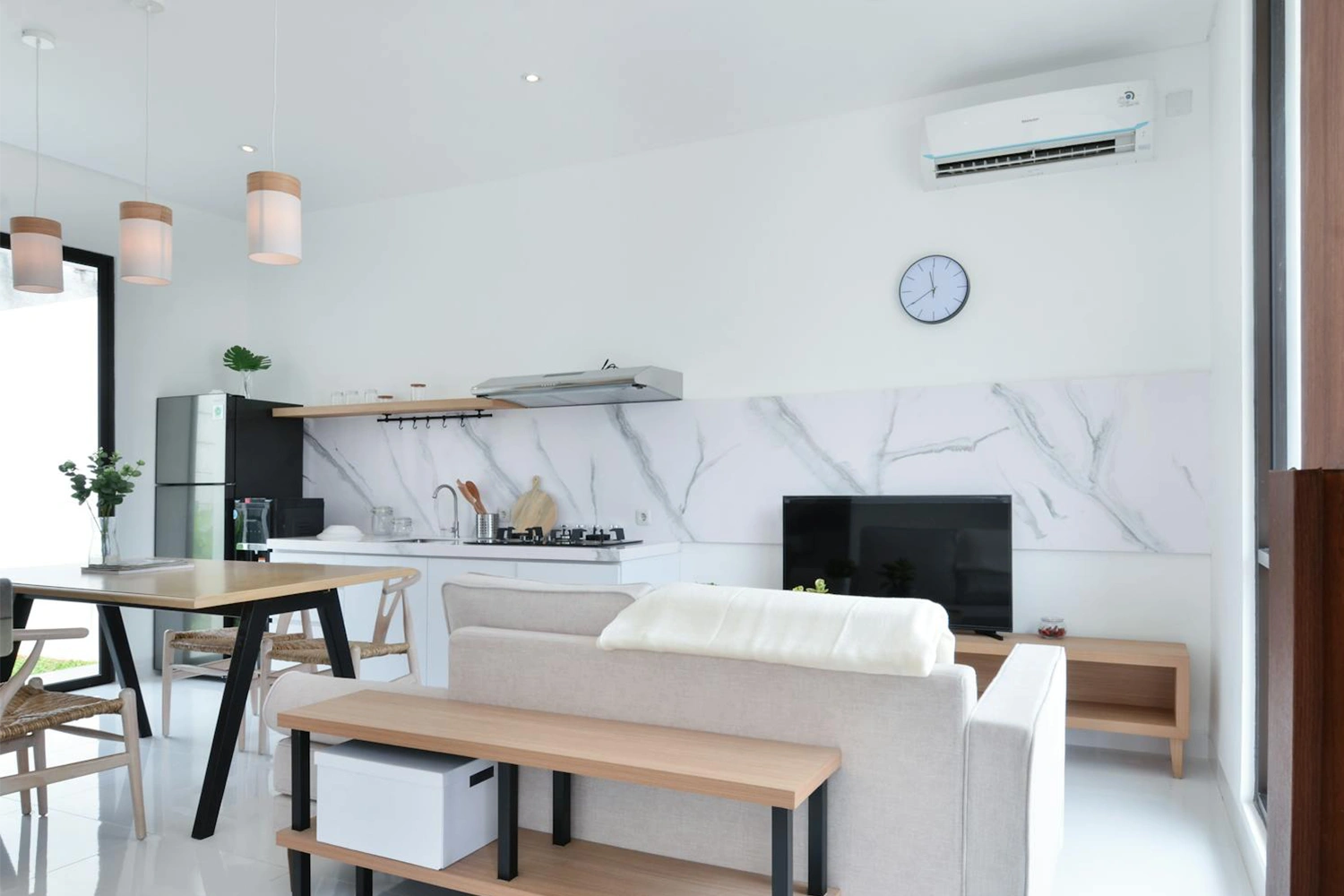Have you ever wondered about the difference between a dehumidifier and an air conditioner? If so, you’re not alone. Both devices play crucial roles in maintaining a comfortable indoor environment, but they do so in very different ways.
In this article, we’ll talk about the differences between air conditioners and dehumidifiers, their specific purposes, energy efficiency, and how to determine which one you need.
Dehumidifier vs Air Conditioner: Definition
When it comes to indoor climate control, understanding the basic definitions of dehumidifiers and air conditioners is the first step. Both devices may seem similar but serve different primary functions that cater to your specific needs.
What is a Dehumidifier?
A dehumidifier is a device designed to reduce the level of humidity in the air. It works by drawing in moist air, removing the moisture, and then releasing the drier air back into the room. This is particularly useful in areas with high humidity levels, helping to prevent mold growth and maintain a comfortable living environment.
What is an Air Conditioner?
An air conditioner, on the other hand, is designed to cool the air in a room. It does this by extracting heat from the indoor air and expelling it outside, thereby lowering the indoor temperature. Air conditioners can also reduce humidity to some extent, but their primary function is to provide cooling.
Dehumidifier vs Air Conditioner: Purpose
Understanding the purpose of each device can help you decide which one is more suited to your specific needs.
What is a Dehumidifier for?
Dehumidifiers are primarily used in environments where excess moisture is a problem. This includes basements, bathrooms, or any space prone to dampness and mold growth. By controlling the humidity level, dehumidifiers help in creating a healthier and more comfortable living space.
What is an Air Conditioner for?
Air conditioners are used in situations where cooling is the main concern. They are ideal for hot, humid climates where reducing the temperature is essential for comfort. Air conditioners are commonly used in homes, offices, and other buildings to maintain a pleasant indoor temperature during warmer months.
Dehumidifier or Air Conditioner: Which is More Energy Efficient?
When it comes to energy efficiency, both devices have their advantages. Dehumidifiers generally use less energy compared to air conditioners because their primary function is to remove moisture rather than cool the air.
However, modern air conditioners are also designed to be energy-efficient, especially when used in conjunction with proper insulation and other energy-saving measures.
How to Know Which is Right for You
Deciding between a dehumidifier and an air conditioner depends on your specific needs. Here are a few considerations to help you make the right choice:
- Humidity Levels: If you’re dealing with high humidity, a dehumidifier is the way to go.
- Temperature: If cooling is your main concern, an air conditioner is essential.
- Room Usage: Consider where you need the device. Basements and bathrooms benefit more from dehumidifiers, while living rooms and bedrooms might need air conditioning.
- Energy Efficiency: Check the energy ratings and consider long-term usage costs.
- Health Concerns: If mold and allergens are an issue, a dehumidifier can help improve air quality.
Costs: Factor in the upfront purchase price, installation costs (if applicable), and the ongoing operating costs of each option. Dehumidifiers are generally more affordable to purchase and operate compared to air conditioners.
Dehumidifier vs Air Conditioner: When to Get Both
There are situations where having both a dehumidifier and an air conditioner can be beneficial. This is especially true in regions with high humidity and hot temperatures. Here’s when you should consider using both:
- High Humidity and Heat
In places where the summer months are both hot and humid, using an air conditioner can cool the air, while a dehumidifier can further reduce the humidity. This combination ensures optimal comfort and air quality.
- Basements and Living Areas
Basements often have high humidity levels, making a dehumidifier necessary. Meanwhile, the rest of your home might need air conditioning to stay cool. Using both devices can address specific needs in different areas of your home.
- Allergy and Asthma Concerns
If you or someone in your household suffers from allergies or asthma, controlling both temperature and humidity is crucial. An air conditioner can help with cooling and basic humidity control, while a dehumidifier can provide additional moisture management, reducing allergens like dust mites and mold spores.
The Bottomline
Choosing between a dehumidifier or air conditioner comes down to your specific needs and the conditions in your home. Understanding the differences and purposes of each will help you make an informed decision that will keep your indoor environment comfortable and healthy all year round.Don’t settle for discomfort. Achieve the ideal indoor climate with expert guidance and tailored solutions. Contact us now to schedule your consultation and discover the difference a professional approach can make.






